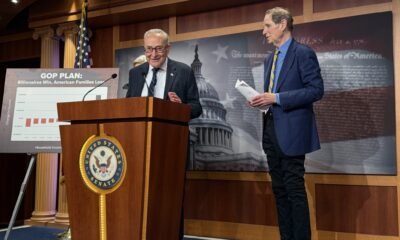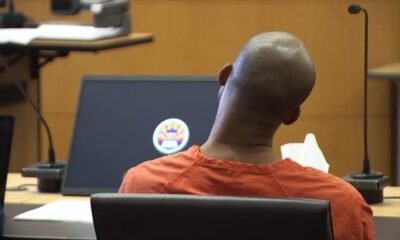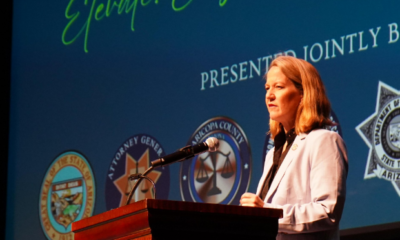attorney general
AG Mayes Faces Grand Jury Again in High-Stakes Fake Electors Case

In a significant development, Maricopa County Superior Court Judge Sam Myers ruled that grand jurors were not adequately informed about the Electoral Count Act of 1887 prior to issuing indictments against 11 individuals involved in a scheme regarding the 2020 presidential election. This oversight raises questions about the validity of the indictments.
Judge Myers noted that the absence of this critical federal law’s explanation may undermine the basis for the indictments. Defenders argue that their actions were lawful under the provisions of this Act, which addresses competing presidential elector ballots from a single state.
The defendants, including Tyler Bower, claim they did not intend to commit fraud by signing documents as legitimate electors for Donald Trump, despite the fact that official results showed Joe Biden won Arizona by over 10,000 votes. They anticipated that Trump might prevail and wanted their slate of electors to be ready.
Whether the grand jury will reconsider its stance remains uncertain. Judge Myers stated that understanding the Electoral Count Act was crucial for the jurors in determining the legality of the defendants’ actions.
During the grand jury proceedings, state attorneys were aware of the defendants’ claims that federal law authorized their actions, but critical texts of the law were not provided to the jurors. Myers asserted that offering a comprehensive understanding of applicable law, including justification defenses, is essential to a fair judicial process.
“Due process compels the prosecutor to ensure an impartial presentation to the grand jury,” he emphasized. The judge concluded that the failure to provide the Electoral Count Act denied defendants a substantial procedural right under Arizona law.
Attorney General Kris Mayes plans to appeal the ruling, arguing that the court’s decision lacks merit. A spokesperson for Mayes stated, “We are preparing to file a special action to appeal the ruling.” This appeal could delay the case’s return to the grand jury and postpone the scheduled trial date of January 5.
The original indictment implicated 18 individuals in a scheme to obstruct the lawful transfer of presidential power, a plot that allegedly involved signing documents claiming Trump won Arizona’s electoral votes. Some of those charged include current and former state legislators and key Republican Party officials.
The defendants maintain they acted lawfully and aimed to protect their rights as electors. However, prosecutors contended that their actions were part of a broader scheme intended to undermine Biden’s electoral victory.
Further complicating the case are charges against various figures within Trump’s orbit, including former White House Chief of Staff Mark Meadows and several attorneys. Trump himself has been identified as an unindicted co-conspirator.
Central to the defense’s argument is the assertion that there was no intent to break the law. As the case unfolds, the ramifications of the judge’s ruling and the potential for a retrial loom large.


















